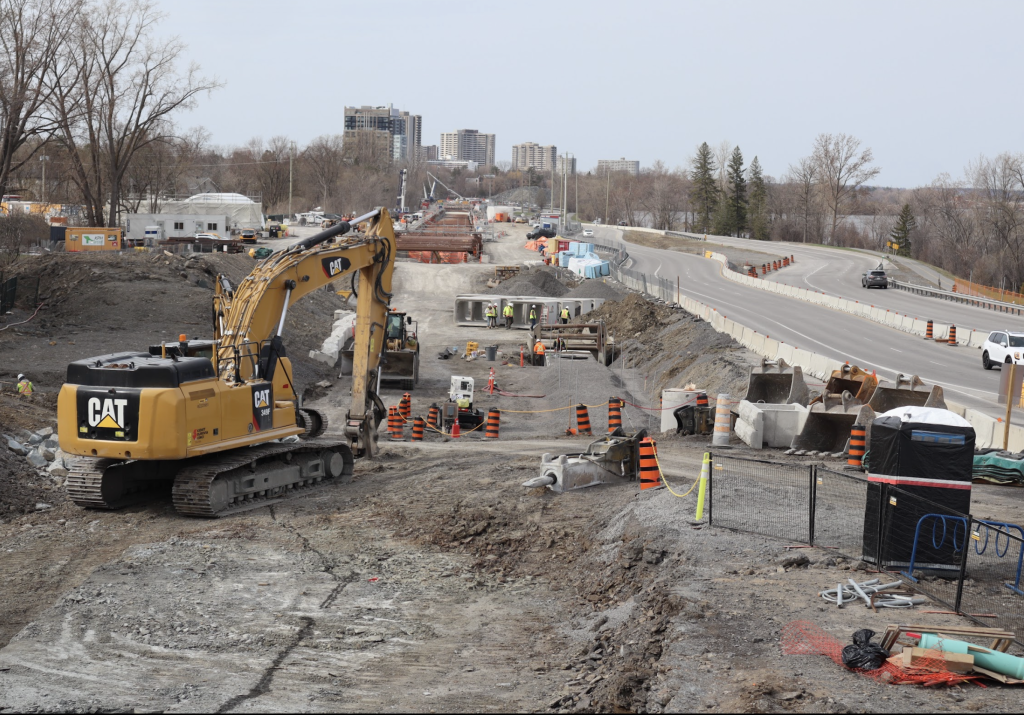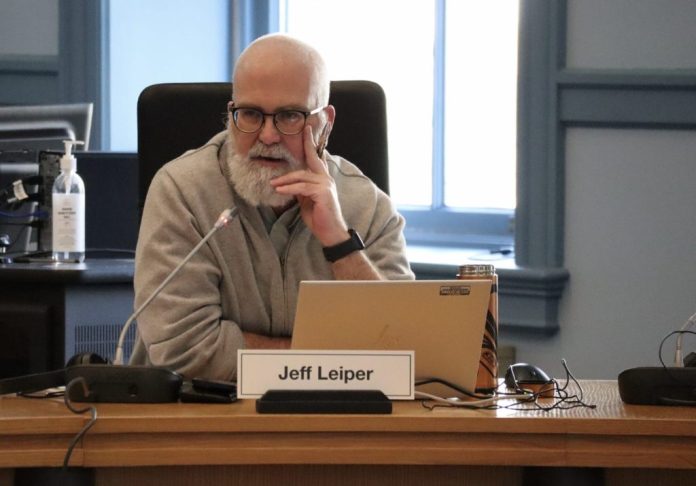By Charlie Senack
After sitting at the council table for over a decade, Kitchissippi representative Jeff Leiper said he feels his role has shifted over the years.
During his first and second terms, Leiper was a vocal critic who oftentimes opposed decisions that were made by a large portion of his council colleagues — particularly around development.
But now Leiper said his time is better spent seeking “thoughtful intensification.”
“With my views on development, residents have noticed that I’ve started voting in favor of more rezoning. That’s partially because I’m taking this broader citywide view,” Leiper told KT. “But I’ve also learned a lot about how development allocations are likely to go. I’m less likely today compared to nine years ago to rail against the wind.”
That has been a controversial shift, but Leiper said it’s been worth it.
“I’ve heard from residents who would like me to fight development and intensification. But over the course of nine years I’ve learned a lot about where the wiggle room is,” he said. “I don’t think, given expanded responsibilities, that my time is best spent performing opposition to buildings if that’s not actually going to be useful.”
That was seen last summer when Ottawa’s planning committee voted twice in favor of building two towers — consisting of 16 and 17 storeys — at 1081 Carling Ave., where a medical building currently sits.
Civic Hospital community members expressed concerns over how the two buildings’ shadow effect would impact research at the Central Experimental Farm located across the street. Even members of Agriculture and Agri-Food Canada (AAFC) shared their worries.
Despite the project’s strong opposition, Leiper, who now chairs the city’s planning committee, gave his stamp of approval because the proposal met all city guidelines.
KT caught up with Leiper to find out what his five remaining priorities are for this term of council.
1. Building more affordable housing
The City of Ottawa is on track to build more affordable housing than ever before, but it’s still not enough.
In Sept. 2023, the city’s planning and housing committee approved a capital spending plan worth $75.7 million. It brought the total number of units in Ottawa either under development or in pre-development to 1,787.
Even so, Leiper said about 12,000 people remain on a list for deeply affordable housing throughout the city.
“We are in a housing crisis and that means different things to different people. There is a crisis in middle class housing where it’s difficult for people of any income range to be able to afford housing,” he said. “It’s particularly more difficult for younger Ottawa residents. We need to increase housing supply through intensification and through zoning.”
On Feb. 12, the federal government pledged to give the City of Ottawa about $176 million through a housing deal. It aims to speed up the construction of 4,400 units over three years.
2. Enhancing public transit
It’s no secret that Ottawa has a struggling transit system. While Kitchissippi’s routes are not perfect, they are better than elsewhere in the city, including the suburbs.
Leiper said he hopes investments will continue to be made to the system so it works properly for everyone.
“Residents have seen first-hand that we are allowing a lot more housing going in without parking. We are seeing increased congestion on our streets. Transit has to work if intensification is going to work,” he said. “Intensification is going to have to work if we are going to have a sustainable, affordable city.”
The Phase 2 Trillium line of Ottawa’s light rail transit system has been delayed again and will now open this summer. It was previously promised to open this spring. The trains are currently being tested from Bayview Station to Limebank Road in Riverside South. Once the trains are in operation, it will provide easier transportation access to Little Italy, Carleton University and South Keys.

City council will soon need to decide if it’s smart to fund Phase 3 LRT out to Kanata, Stittsville and Barrhaven. While Leiper said he was a strong supporter of the project, a detailed cost analysis will need to be taken to see its viability. Some councillors have instead called for funding to go into bus rapid transit (BRT) instead.
“We know that the federal and provincial governments like to fund trains. They like to cut ribbons on train projects. But something like BRT could be a very interesting way to drastically increase the reliability of connections to the Stage 2 stations,” he said.
3. Undertaking the comprehensive zoning bylaw review
This might not sound particularly “sexy”, noted Leiper, but it’s an important step to double down on intensification with a new official plan in place.
“Our zoning today is way out of date to what the official plan says, and as a result, that’s a barrier to developers building homes. Every development is a zoning application [and] every development is a fight,” said Leiper.
The Kitchissippi councillor said as-of-right zoning is needed to meet the housing targets Ottawa has committed to with the federal and provincial governments.
“The comprehensive zoning bylaw is an opportunity to bring the zoning up to date with what the official plan says, so that residents know what to expect on their street, and builders will know what we expect them to build,” said Leiper. “
4. Finding the next big project
Leiper said that during his time in office, he’s had success with the building of a new Van Lang Field House, the redevelopment of Laroche Park, and the opening of the new Chief William Commanda Bridge.
As his time on council ticks down, Leiper said he’s looking for his next big project to be a lasting legacy.
“Whatever it is, [it] will probably be the last that I have the opportunity to work on as a city councillor. I’m looking at our public realm and trying to figure out if we can get some new great green space in the ward,” he said.

Leiper said that opportunity could come with the former Granite Curling Club located at 2026 Scott St.
In May 2022, the City of Ottawa received a Zoning By-law Amendment application to facilitate the construction of three high-rise residential towers consisting of 20- 36- and 40-storeys respectively at Scott and Athlone.
In Nov. 2023, a site plan control application requested the construction of two, 40-storey high-rise residential apartment buildings at the site, with a total of 856 units. The development would include a total of 418 parking spaces and 630 bicycle parking spaces.
Leiper also said he’d like to depave some streets and acquire more residential land to be converted into public greenspace.
5. More bike infrastructure
Leiper’s love of cycling is no secret to anybody. So it’s no surprise he’d like to see more bike lanes.
While large cycling infrastructure upgrades have been made, Leiper said there are some missing connections he’d like to secure.
“Particularly the connection along Churchill to Scott from Byron,” the cyclist said. “That missing link drives me nuts. It’s two key spines in our city bringing people from the west end and the south end, through to our main east-west corridor that isn’t connected.”
